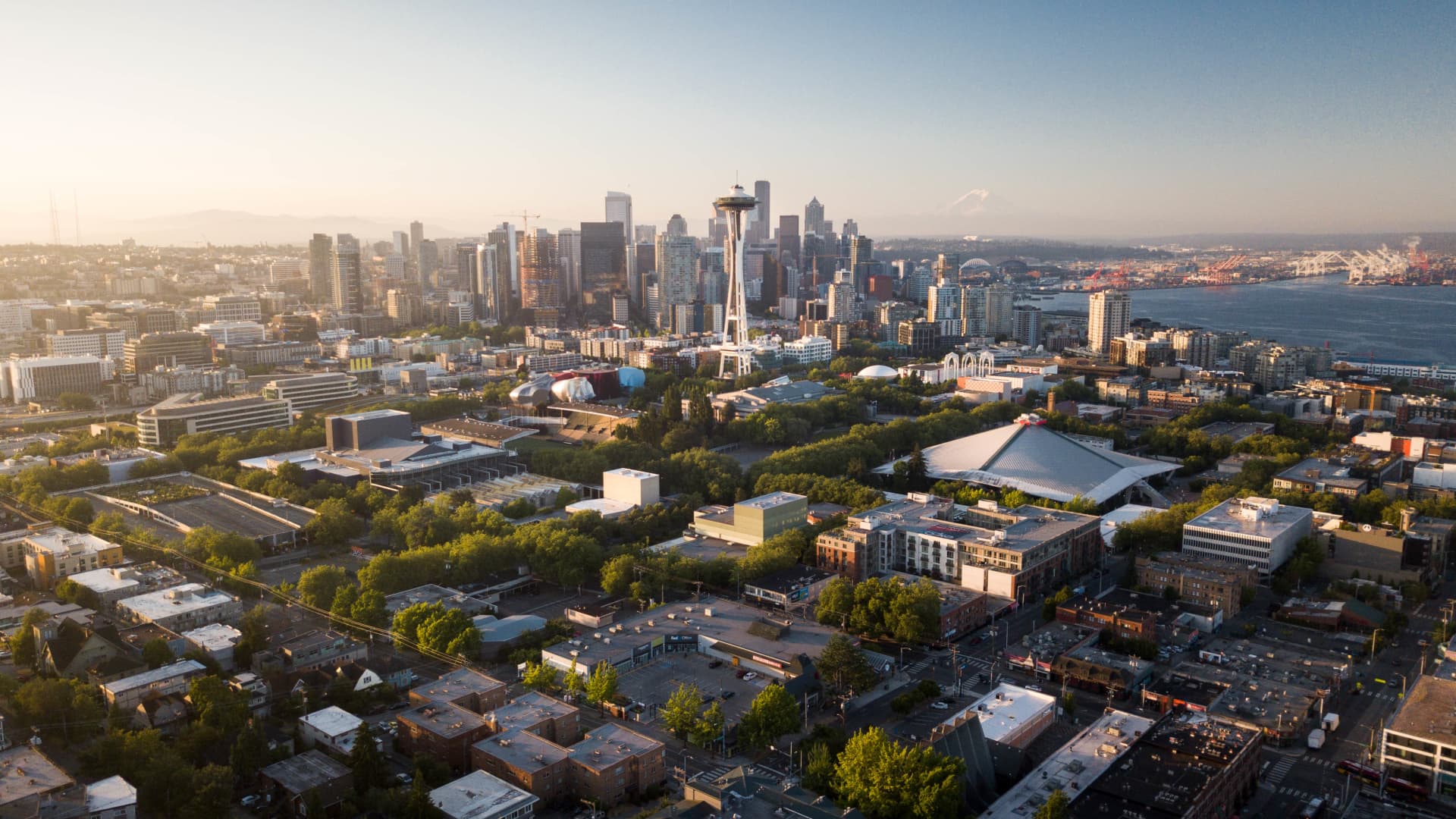P
roperty Play, a CNBC newsletter co‑authored by Diana Olick, spotlights fresh real‑estate opportunities for investors of all sizes. Subscribe to receive each issue straight to your inbox.
AI is reshaping the demand for office, residential and retail space. Between mid‑2024 and mid‑2025, the number of U.S. and Canadian tech workers with AI expertise jumped more than 50 %, reaching 517,000 according to a CBRE study of LinkedIn data. The talent is heavily clustered in the San Francisco Bay Area, New York City, Seattle, Toronto and Washington, D.C., with the first three accounting for 35 % of the national total.
Growth by city is striking. The New York metro added 20,000 AI‑skilled workers in the past year, the largest absolute increase. Atlanta, Chicago, Dallas‑Fort Worth, Toronto and Washington, D.C. each posted year‑over‑year gains of 75 % or more. Some of this expansion reflects workers up‑skilling in AI, while others entered the workforce already equipped with those skills.
CBRE’s Tech Insights Center executive director Colin Yasukochi notes that “San Francisco remains the epicenter of the AI revolution, home to firms like OpenAI.” Yet AI’s reach extends beyond Silicon Valley, tapping into markets where traditional tech has retreated. The financial‑services, insurance and real‑estate (FIRE) sector now actively recruits AI talent, driving higher office and apartment demand in Manhattan.
Fintech firms are intensifying competition, prompting financial services companies to hire aggressively for AI roles. Unlike other tech segments that have embraced remote work, AI remains in its nascent innovation phase, keeping talent in the office. In the first half of 2025, tech firms accounted for 17 % of U.S. office leasing activity, up from 10 % in late 2022. In San Francisco alone, one‑quarter of all office square footage leased in the past 2½ years went to AI companies.
The influx of AI professionals also fuels residential demand. Apartment rents have risen across the top AI markets: Manhattan +14 % (2021‑2024), Washington, D.C. +12 %, Seattle +7 %, San Francisco +6 %. AI salaries typically cover rent in high‑cost areas, meeting the 30 % income‑to‑housing affordability benchmark. In Manhattan, tech workers spend 29 % of their wages on rent; in the Bay Area and Washington, D.C. the figure drops to 19 %.
Yasukochi emphasizes that AI is still in its early days, “another potential tech boom that is drawing people to cities where it’s happening and reshaping real‑estate markets.”












